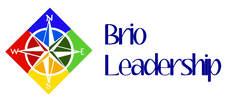 In a survey of 75 members of the Stanford Graduate School of Business Advisory Board, respondents rated self-awareness as the most important capability for leaders to develop. Executives need to understand their own foibles and propensities – the characteristics that executives assume to be the norm but in fact are the exception – to be an effective leader. One powerful way to build self-awareness is to practice self-reflection, and what better time to start than at the end of a year? It’s time to look back on the last twelve months to identify you and your organization’s successes and where you missed the mark, so you can prime yourself for the new year. In this article, we offer a series of questions that you can use to do a self-evaluation – either of yourself or of your team. Light a candle to symbolize the importance of the moment and answer these questions by recording them in a journal. Note: these questions are equally valid when applied to your own personal accomplishments or those of your team. Reflection questions:
1. What were the successes, wins and accomplishments of this past year? How did you and/or your team accomplish them? 2. What were the times of greatest satisfaction, fulfillment or fun of this past year? 3. What did you and/or your team learn from your successes and greatest satisfaction? How do you feel about them? 4. If there are no failures in life, only learning opportunities, what were your learning opportunities in this past year? What did you and/or your team learn? How will you and/or your team apply your learning to future efforts? 5. Looking forward, what values do you and/or your team most want to honor in your lives this year? (value examples: profit, family, excellence, integrity, compassion, etc.) 6. Imagine that it is New Year’s Eve of next year. What do you and/or your team envision as your accomplishments and satisfactions in the year to come? How will you and/or your team feel when you accomplish them? 7. Looking at your desired accomplishments and satisfactions for next year, what do you need to accomplish each quarter to achieve them? What do you need to accomplish each month to achieve them? 8. What will be your daily and weekly activities that will forward you toward your goals this year? When you have completed the questions, sit back and think about what you’ve written. Notice patterns and similarities. What is the underlying pattern or theme of the past year? For example, the theme of the year might be “learning opportunities” or “sowing the seeds” or “great accomplishments.” What will your theme be for next year? I encourage you to articulate your dream for the year and encapsulate it in a phrase.
0 Comments
Leave a Reply. |
From the desk of
|
Our services |
Our Company |

 RSS Feed
RSS Feed

